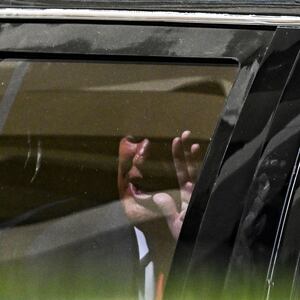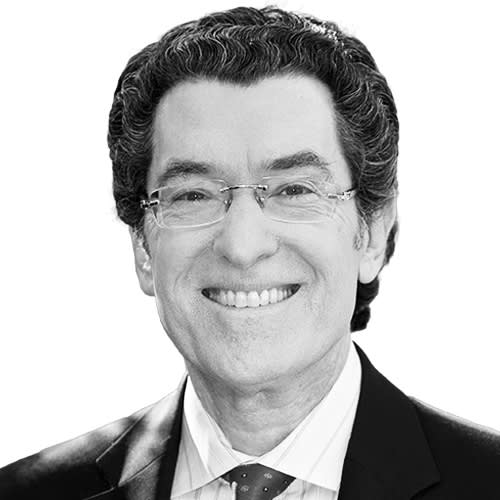What may prove to be the trial of the century is off and running.
Courtroom proceedings in the trial of Donald J. Trump began in Miami today with the former president’s first appearance before a federal judge to stand trial for 37 felonies—related to his alleged unlawful removal of dozens of classified documents and his alleged obstruction of the investigation of that removal.
It will be one of the most important court cases in our nation’s history. It’s the first federal criminal prosecution of a former president and, depending on how the pending Manhattan prosecution concludes, potentially the first criminal trial of an ex-president.
The case is proceeding while Trump is running for president once more—and, as with just about anything involving him, it will be divisive, controversial, and impossible to take your eyes off of.
Even though this case has so many extraordinary features, the genius of the American legal system is that almost everything which will unfold in the court will be ordinary, structured, and even banal. That is as it should be in a rule of law system.
That starts with an arraignment—like the one Trump participated in today. It was boringly routine. The defendant was formally advised of the charges and entered a plea, usually not guilty (as happened today). Then, the judge sets a schedule after some preliminary discussion with the attorneys. That is what occurred with Trump. Despite the continuous coverage on TV and the protestors outside the courthouse—which turned out to be largely uneventful—what happened inside the courthouse was even more mundane.
First, defendants figure out who will represent them, and here, too, Trump has something in common with even the most impecunious person. He’s still looking to finalize his legal team.
Indeed, he may be worse off in this regard than the average defendant, because he has reportedly been turned down by several attorneys in Florida. That is little wonder given the combination of the fact that his lawyers often get in trouble, from one-time fixer Michael Cohen pleading guilty to the campaign finance violations relating to alleged 2016 election interference to Trump’s current counsel Evan Corcoran in this very case.
Second, there are questions about whether the judge will be fair. Ironically, the longstanding conservative trope about judges who are too easy on defendants comes into play here.
Social media has buzzed with queries about whether Judge Aileen Cannon’s earlier decisions favoring Trump when he challenged the aftermath of the Mar-a-Lago search shows that she is biased. Federal law requires a judge to recuse herself in any proceeding in which her “impartiality might reasonably be questioned.” Judge Cannon bizarrely ordered the government not to utilize the documents it seized and appointed a special master, a decision reversed on appeal for “carv[ing] out an unprecedented exception in our law for former presidents.”
Legal experts (including one of the co-authors) have concluded that she must recuse herself. We will see if she does that or not, but if she keeps the case, the 11th Circuit will undoubtedly be keeping a close eye on her and be ready to reassign if this pattern of favoritism continues.
Third—will the jury be fair? Another question that prosecutors, defense lawyers, and defendants ask in every case. Here, it has a sharper point on it: is it possible to find a fair and impartial jury in politically volatile Miami in the swing state of Florida? The conventional wisdom is that everyone has a strong opinion about Trump, and most people probably have their minds made up about his guilt or innocence. The reality, however, is that the vast majority of Americans follow politics casually or not at all.
Additionally, the entire jury selection process (called “voir dire”) is geared towards finding twelve jurors (and likely a few alternates) who can be fair and impartial, and the tug-of-war by highly-skilled lawyers pulling for and pushing against (what they perceive to be) favorable or unfavorable jurors for their respective side often yields a balanced jury. Once jurors settle into their chairs and begin participating in the formal and serious nature of a criminal trial, our experience froma combinedhalf-century of litigating cases is that jurors tend to be open-minded, diligent, and thoughtful. They carefully review evidence and follow the court’s legal instructions with the appropriate reverence for the task at hand.
Between arraignment and trial there will be multiple other tedious procedural steps. The parties will file motions about the charges and evidence; there will be discovery, where the parties exchange pertinent information; and there could be a schedule change or two or three. Here, too, while the content of some of the filings and arguments will be remarkable, the procedures are ones that have been followed countless times, giving us a well-developed set of practices to adjudicate these issues.
Until the trial begins, that steady diet of the commonplace inside the courtroom will play out against the cacophony outside. Legal experts will offer play-by-play coverage, politicians will grandstand, and political pundits will pontificate.
But ultimately what matters most will happen in the courtroom—quietly and routinely—very much like the thousands of other criminal cases that proceed every day across our country. Trump will remain innocent until proven guilty, as our Constitution guarantees every single criminal defendant.
Whether he is guilty or not will depend not on the many views outside the courthouse but on the twelve people in the jury box. And in spite of everything surrounding the case, there is something reassuring about the process running its ordinary course under such extraordinary circumstances.









